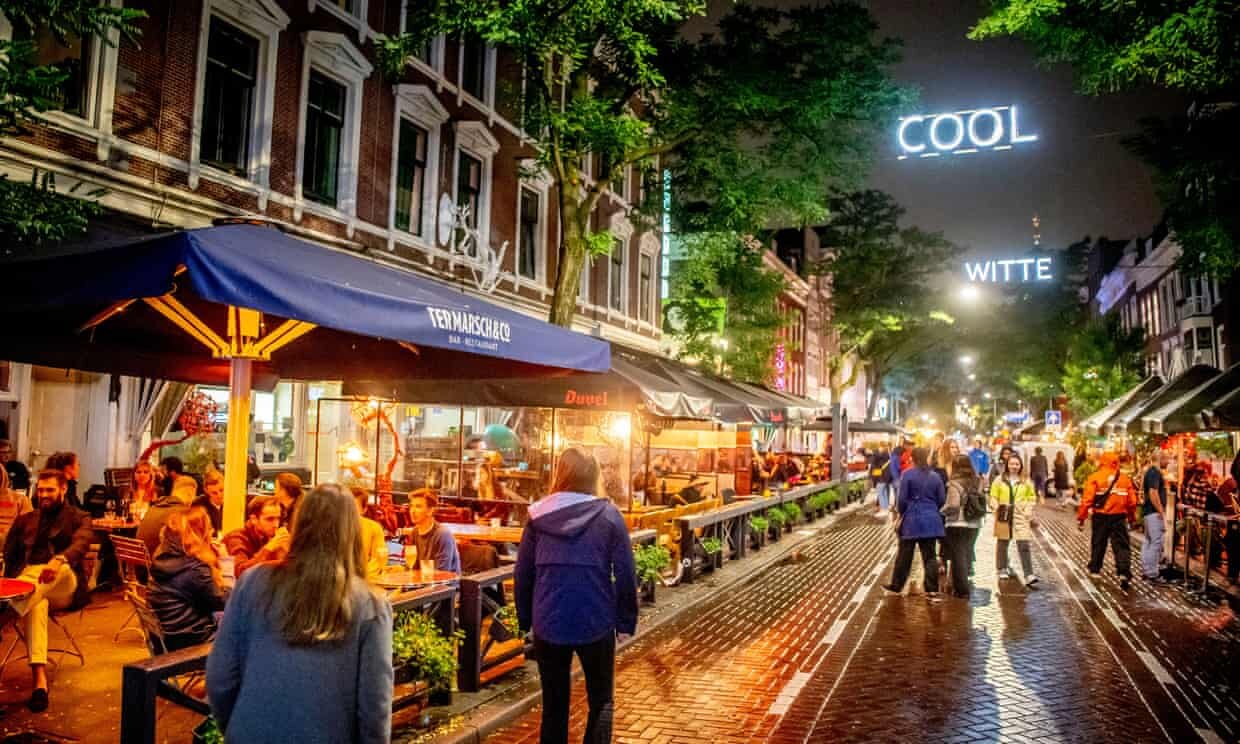It looks like the pandemic is helping us to move our business into the streets - and killing the urban car along the way
It’s on all of our minds - how we can get Covid policy right, so that we can strike a balance between protecting each other from infection, yet holding the fabric of our society and economy together? (We sense that one of the messages of the pandemic is that the latter side has to fundamentally refigure itself.)
But the void of waiting for a vaccine, and the deeper abyss that opens up when you consider that coming climate disruptions may be worse, means that we should take some solace from our ability to improvise. As well as being the great polluter, humanity is the great adaptor.
A perfect example of this is the tendency, picked up here, for cities to use Covid as permission to prioritise people over parking.
The story begins in Rotterdam (pictured above), where the local traders are seeking to make the most of the consistent medical advice that being outdoors, and distanced, is one of the safest ways to associate with others:
Where once there was parking, now there are decks. At the start of the year, Rotterdam’s Witte de Withstraat was a car-choked thoroughfare. Today, cars are banned after 4pm, locals stroll leisurely down the middle of the road and special wooden terraces have taken the place of parking spaces.
“The terraces are a fantastic solution,” says Iris Wulffraat, teh owner of Eetcafé Opa (‘Cafe Grandpa’) and Bierboutique. “They give the extra space we need right now. And they’ve been decorated in a very attractive way – there’s a completely different energy to the area now.”
It’s not just bars and restaurants that have benefited. MAMA, a contemporary art gallery, has installed seating and speakers so passersby can watch the video installations displayed in their huge windows.
The scheme is part of a phenomenon that has swept the world’s cities amid the coronavirus pandemic: parking spots reclaimed for pedestrians. In Rotterdam, the programme allows businesses to take over the parking spaces directly in front of their building, without a permit. Proprietors can lay their own but the municipality provides decks free of charge.
The decks are made from reclaimed and repurposed wood. The authorities handle installation and removal. So far, 1,000 have been installed across the city.
“Post-lockdown, we wanted to give all types of businesses as much physical space as possible to help them recover lost revenue,” says Tristan van Rijn, a spokesperson for Barbara Kathmann, one of three municipal representatives behind the scheme. “So we set up a special team to look at potential problems and hotspots, gave everyone the possibility to order a terrace and waived all permit requirements. We moved quite fast to achieve this.”
The reallocation of urban space has become one of Covid-19’s most tangible effects on the built environment. Cities are being forced to innovate and the car is bearing the brunt.
More here. The rest of the piece identifies some encouraging global efforts:
Oakland, California, has converted many neighborhood streets into pop-up “slow streets”, closed to car traffic.
In London, the mayor, Sadiq Khan, introduced Streetspace for London, including temporary cycle lanes and wider pavements.
In Paris, the plan is for 650 new kilometres of pop-up “corona cycleways”, and the removal of 72% of on-street parking. “The current health crisis forces us to rethink our mobility system,” Valérie Pécresse, the president of the Île-de-France, explained to Le Parisian.
Even Vilnius, Lithuania, with its typically cool, rainy summers, made an effort to turn public streets into an open-air cafe.
Parking spaces have proved the perfect way to reclaim the required land. Many people are working remotely and inner cities have had huge drops in visitor numbers….Portland, Oregon, was one of the first to seize on parking spaces with its Come Thru Market. The initiative connects black and minority ethnic farmers, with customers through local parking lots in disadvantaged neighbourhoods.
Las Vegas has erected tented shelters and “cooling centres” in unused parking lots for homeless people to take refuge and access services.
More: the city theorist Dan Hill is the very spirit of urban adaptation to the Pandemic. Read his “Slowdown Papers”, filled with ideas and suggestions.

